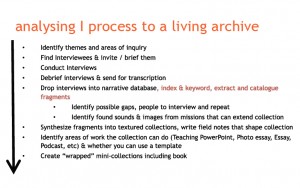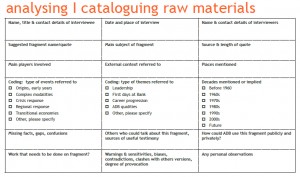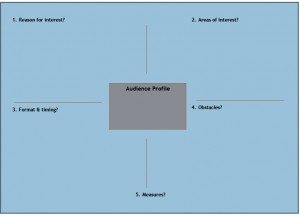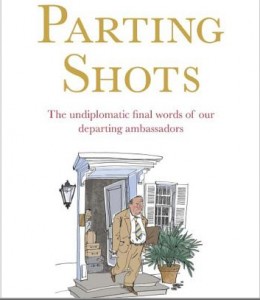A really timely thought piece ‘Becoming the law firm clients really want’ landed on my desk this week.  By Peppermint Technology Research, it characterised the future of law firms as being ‘the death of difference’ noting that legal will become much like other sectors. This scenario has profound implications for lawyers, professional support lawyers and legal knowledge & information management (KIM) professionals.
By Peppermint Technology Research, it characterised the future of law firms as being ‘the death of difference’ noting that legal will become much like other sectors. This scenario has profound implications for lawyers, professional support lawyers and legal knowledge & information management (KIM) professionals.
On December 9th Martin White and I will be hosting a breakfast breakout event at the RSA The future for Legal KIM: An Outside-In perspective. In it we will look at some of the issues facing KIM professionals. Martin and I have worked in many industries across many countries; we’ve seen and been involved in seismic shifts in the KIM roles in engineering, energy, the 3rd sector, publishing, software and finance. Our thinking in putting this event together was to share some of our experiences in a relaxed setting with like minded legal KM’ers.
So over the past few weeks in the run up to the event we have been looking at the four big issues research had told us were near the top of the legal professions ‘must do’ list.
- Lawyers come and go – capturing knowledge at speed
- Getting the best from virtual teams
- Collaboration and KM beyond the firewall
- Bringing it all together – legal project management
I began with Going but not forgotten: knowledge capture in a hurry, Martin then wrote The opportunities for digital workplace adoption by law firms and Certifying virtual teams – a key skill in digital workplace implementation.
bringing it all together – legal project management
Today I am going to focus (from a KIM perspective) on the challenges of setting up a project management infrastructure that allows an organisation to learn from previous experiences and feed back learnings from the project back into the business.
There are many project management disciplines being used in industry. The Stage-Gate new product development (NPD) methodology is one example in which the veracity of new products are assessed and resources allocated according to a set of criteria for each stage of the process. Knowledge capture is built into the process.
Irrespective of the system you adopt below are a few of the questions you will need to be asking (I’ve omitted the obvious budget ones):
set up (learning before)
- What do we know about this subject and what has been done before?
- Who is an expert (internal and external) and can we get their input before starting the project?
- Who should we invite to the Kick Off meeting and how do we want to structure that?
- What structures are we going to use for management, monitoring and decision making?
- Who is going to be on the Project Steering Group and how do we manage those stakeholders and others? How often should they meet and in what format?
- How are we going to capture the outcomes of meetings, store the material we generate and make people aware of what’s happening?
- How do we collaborate across teams and boundaries to ensure the best possible decisions are made based on the best?
conduct (learning during)
- Who do we go to for answers to tricky questions that arise and how do we do that?
- How often are we feeding learnings back into our project?
- Who is providing updates and in what format?
- Where are we storing progress reports?
conclusions (learning after)
- What format will the debrief take and who will be invited?
- When and where will you hold it?
- Who will be tasked to action the outcomes?
I remember a conversation once with Professor Victor Newman on his Baton Passing Technique which arose in part to ensure project knowledge is passed on. He said:
The big problem in managing learning to have an impact is to know what knowledge is useful, to whom, the form it should take, where and when it is best applied and when best to share it
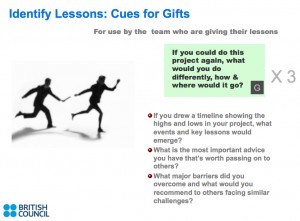 Alongside is an extract from the slides Victor and the British Council made available. It works, I’ve tried it!
Alongside is an extract from the slides Victor and the British Council made available. It works, I’ve tried it!
I have used in addition: After Action Reviews, Pause & Reflects, Retrospects to name but three.
Earlier this year APQC published an interview with me in which I described the concept of DEBRIEF as a technique for capturing learnings at the end of various stages of projects. I will talk more about that on the 9th. It’s not too late to sign up here!
and finally
Too often the KIM team are excluded from the project management processes in favour of an accredited (Prince 2 trained) Project Manager. In my view that’s a grave mistake, there are KM techniques for each step of the process and the good KIM’er will be well versed in facilitating such interventions.
If you fail to learn from what you’ve done then you will not improve as a business and will be uncompetitive with those who do.

